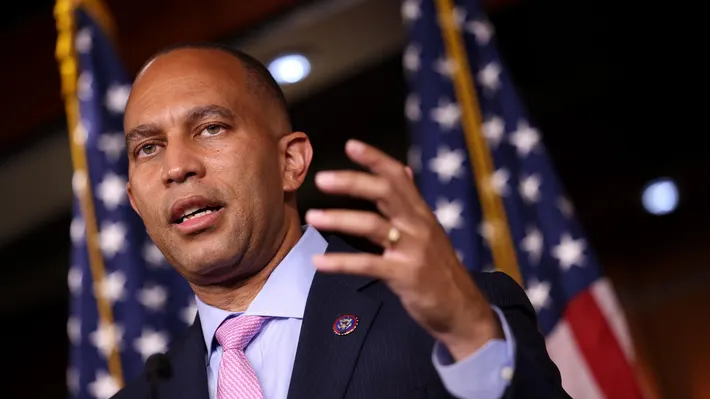Politics
Supreme Court’s Affirmative Action Decision Sparks Political Divide
A divided nation: The Supreme Court’s decision on affirmative action sparks intense debate.

The Supreme Court’s recent decision to overturn race-based affirmative action in college and university admissions has ignited a heated political debate, with major Democrats expressing their dismay while GOP lawmakers praise the ruling. The court’s decision, seen by some as a monumental step, has drawn sharp criticism from Democrats who label it as extremist and accuse the court of being comprised of right-wing ideologues. On the other hand, Republicans applaud the ruling for addressing a longstanding issue on the right.
Affirmative action has long been a contentious issue in American society, aiming to promote equal opportunities for historically marginalized groups. Supporters argue that it plays a crucial role in addressing systemic inequalities and promoting diversity in educational institutions. However, opponents view it as a form of reverse discrimination, arguing that admissions should be based solely on merit.
The Supreme Court’s decision to overturn race-based affirmative action has reignited the debate surrounding this complex issue. While the court’s ruling aligns with the perspective of many conservatives who have long criticized affirmative action, Democrats express deep concern over its implications. They argue that the decision undermines efforts to rectify historical injustices and perpetuates systemic inequality.
Critics on the Democratic side have characterized the Supreme Court’s majority as “extremist” and composed of “right-wing ideologues.” They view the ruling as a setback for civil rights and equality. Democrats argue that diversity in educational institutions fosters a more inclusive and enriching environment, and that race-conscious admissions policies are a necessary tool to achieve this.
Conversely, GOP lawmakers have praised the court for addressing what they see as a long-standing issue. They argue that race should not be a determining factor in college admissions, and that merit-based considerations alone should guide the process. Republicans believe that the court’s decision promotes equal opportunity and meritocracy, aligning with their broader principles of individualism and fairness.
The Supreme Court’s decision on affirmative action has once again highlighted the deep political divide on this issue. Democrats and Republicans hold contrasting views on the role of race in college admissions, with Democrats emphasizing the importance of addressing historical injustices and promoting diversity, while Republicans prioritize merit-based considerations and equal opportunities for all.
The repercussions of this decision extend beyond the courtroom, as it fuels debates on education, race relations, and social equity. Both sides of the political spectrum are likely to continue advocating for their respective positions, as the conversation around affirmative action remains a deeply divisive and complex topic.
As the nation grapples with the aftermath of the Supreme Court’s ruling, it is essential to engage in constructive dialogue that seeks to understand and address the underlying concerns and aspirations of all stakeholders. Only through respectful and open discussions can progress be made towards creating a fair and inclusive society that strives to provide equal opportunities for everyone.













